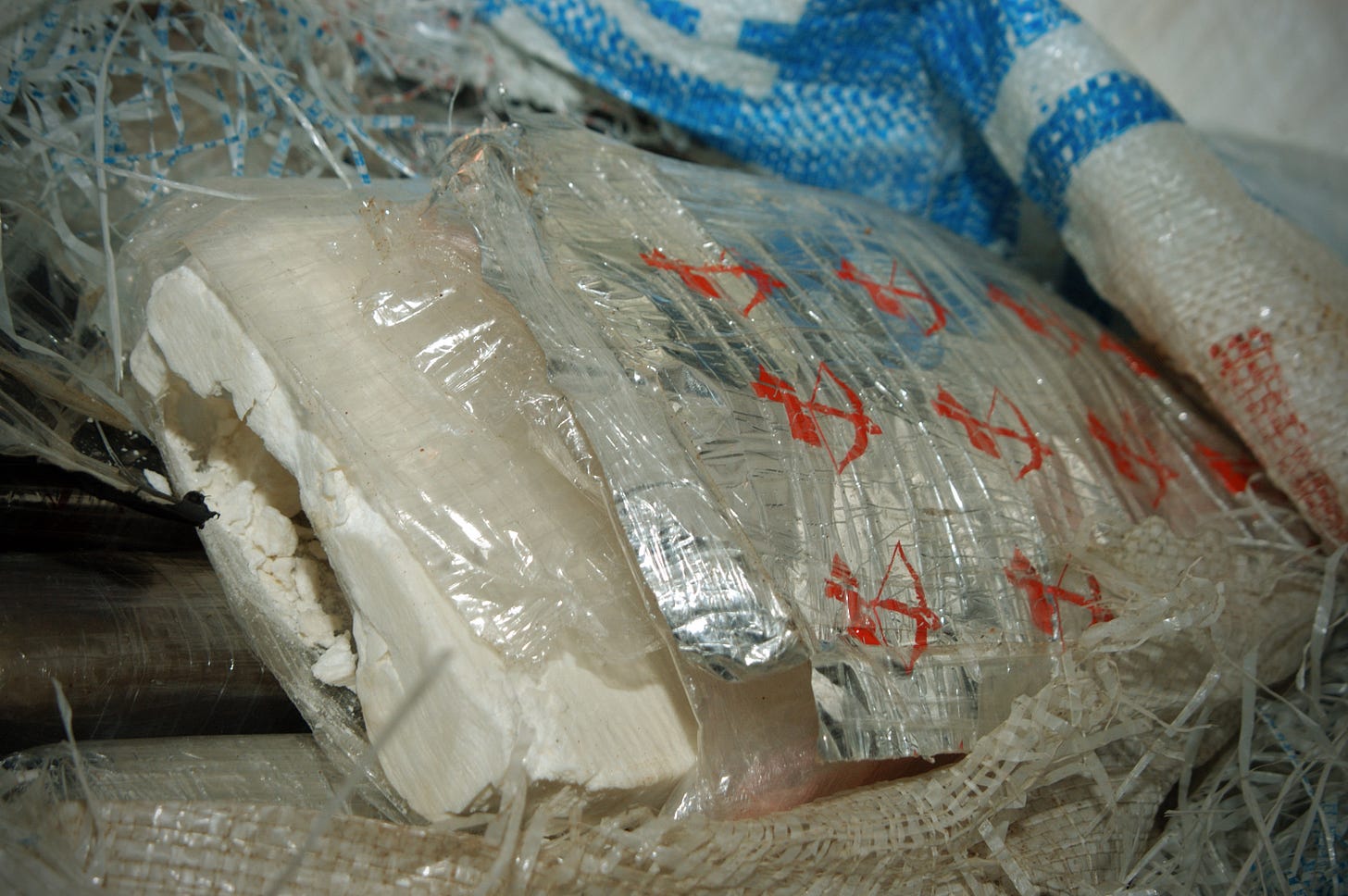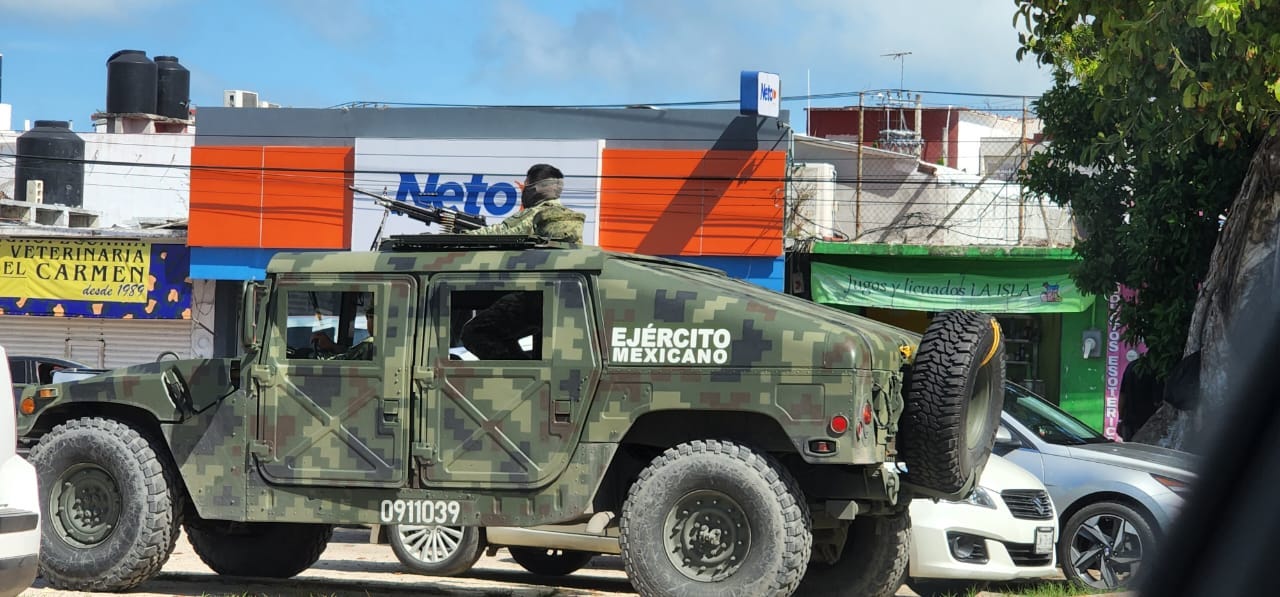So, is Mexico a Narco State?
Security chief Genaro García Luna gets 38 years. He's just the tip of the iceberg.
UPDATE: On October 16, 2024, a court in New York sentenced Mexico’s former security chief Genaro García Luna to 460 months, or over 38 years, in prison for cocaine trafficking crimes.
Judge Brian Cogan said to him at the sentencing: "Aside from your very pleasant demeanor and your articulateness, you have the same kind of thuggishness as El Chapo, it just manifests itself differently."
García Luna maintained his innocence to the end. "I have not committed any of these crimes," he said in court. "I am not the person that the criminals point to."
I find it hard to gauge Mexican officials. I’ve flown in helicopters with soldiers to burn marijuana crops, rode with city police to kick down doors, sat with generals, senators, cabinet members, and with Mexican presidents themselves, and asked them frank questions. And in the moment they talk to me, they appear open, honest and convincing. Yet I wonder afterwards if they were feeding me bull and they are really working with the cartel. And for those that are corrupt, I ask myself, are they just cold and cynical, or do they manage to believe their own lies.
In the New York trial of former Public Security Secretary Genaro García Luna, found guilty by the jury in a historic conviction, it is hard to think of the most damning accusation. The cooperating witnesses who took the stand - hardened narcos, including cartel enforcer El Grande and El Rey Zambada, brother of El Mayo - described how they handed him millions of dollars in cash to protect their operations, take out their rivals and even went into cocaine deals with him.
But the story that most got me was when El Grande, or Sergio Villarreal Barragán, described how the traffickers got their seized cocaine back. He was talking about Mexico’s biggest ever cocaine haul, when the marines took down 23 tons off a ship from Colombia in the port of Manzanillo in 2007. I covered it at the time and it was a big deal, proof that President Felipe Calderón, the boss of García Luna, was taking on the cartels. The New York Times sent a correspondent to watch it burn, and he described the “pomp and ceremony” as the white cocaine morphed into a black cloud.
But it was all a lie, according to El Grande. “We exchange fake drugs for the good drugs,” he told the court. “At a ranch where we trained our hit men, we created a small factory so that we could develop the bricks…We made a mixture of sugar and flour so that we could compress them. They were actually mixed with acetone and ether. And we had them dry out. Once they were dried, we would cover them with varnish so that they would look shiny. And we would package them as any other cocaine brick. And that's how we did it…We transferred them to the Manzanillo port, and I delivered them.”
You caught speculations that cartels were pulling such stunts. But to hear it told in a U.S. federal court really drives it home. The destruction of drugs was a simulation. You could not trust what you saw with your own eyes. The Mexican government, or elements of it, had created a whole simulation it was fighting a war on cartels when really it was working with them.
Which comes to the central question: does this make Mexico a narco state? When traffickers can get 23 tons of cocaine back; when the head of the entire federal police force is working for narcos; when gangsters dress up as police to arrest a rival and hand him in; does this mean the government itself is captured by traffickers?
President Andrés Manuel López Obrador even used this term when discussing the García Luna case. “Imagine the state the country was in. It got to the point of talking of a narco state,” he said. “At the time, I sincerely thought that this was not the correct way to talk of the Mexican state. But with all that is coming out we can talk of a narco state because the government was captured.”
AMLO and his supporters commented a lot on the García Luna trial as it showed how bad the previous administration was, which in turn discredited the current opposition. A survey by the agency Enkoll found that 84 percent of contestants said former President Calderón, who has gone to live in Spain, should also be investigated for drug trafficking.
They may have been disappointed, however, that Calderón’s name did not come up too much in the trial, probably as the prosecutors didn’t want to venture there. The biggest accusation was from the corrupt former prosecutor of Nayarit, Édgar Veytia, alias El Diablo. He described how the Nayarit governor had gone to the capital. “He told me that he had just gotten back from a very important meeting in Mexico City with President Calderón and with the secretary of public security, Genaro Luna. And he told me that the line..was Chapo…That we had to protect Chapo's people.” (Calderón emphatically denied giving such orders.)
The problem though for AMLO and his supporters is that talk of a narco state is not limited to one administration but can indict the whole system. In the trial, AMLO’s name was also brought up, albeit only briefly. The defense lawyer César de Castro said that Jesús “El Rey” Zambada had previously told prosecutors in an interview that he gave money to AMLO’s election campaign.
“Do you remember telling them that you paid him $7 million through Gabriel Regino…when López Obrador was running for president against President Fox?” he asked.
“I do remember paying him some money, that according to him, was for the campaign, but not paying López Obrador,” Zambada replied shortly before the court cut off the line of questioning. AMLO denies wrongdoing and has threatened to sue De Castro over the question.
The Original Cocaine Coup
The term narco state was said to be first used to describe the dictatorship of General Luis García Meza who ruled Bolivia from 1980 to 1981. Along with colonel Luis Arce Gómez, dubbed “the minister of cocaine,” the regime worked with traffickers to move tons of perico to Americans. In the iconic film Scarface, Arce Gómez is portrayed as the character General Cocombre.
Writers and politicians have since thrown the term “narco state” at governments from Colombia to Afghanistan, from the poor African nation of Guinea-Bissau to Holland, center of the European drug trade. The problem though is there is no unified understanding of what it actually means.
A definition by Oxford Reference describes it as, “A nation state whose government, judiciary, and military have been effectively infiltrated by drug cartels, or where the illegal drug trade is covertly run by elements of the government.” This likely wouldn’t apply to Holland, but could sadly be used for Mexico - especially with how the witnesses described the reign of García Luna.
My problem with using it to write about Mexico too much is that it seems to tarnish the whole of the country and its institutions. Drug traffickers, and the broader networks of organized crime, have certainly infiltrated big chunks of the state apparatus from mayors to police chiefs to generals. But that does not mean the entire Mexican state is illegitimate. School teachers get up every morning to teach millions of children from the roughest barrios to the southern jungles. Doctors and nurses save lives every day despite many hospitals being in dire need of repair. And rubbish collectors keep coming to my corner every morning to take away the endless garbage this metropolis of Mexico City churns out.
To call it all a narco state would raise questions about whether governments should even keep up diplomatic relations with Mexico. The García Meza regime in Bolivia indeed was isolated because of its trafficking and violent repression.
I still hold a hope that Mexico can overcome the control of cartels without tearing everything down. We could perhaps think of the Mexican state as a forest. Different trees are different institutions of government, army, education, health, immigration. Cartels are like a venomous weed that has encircled some of the tree trunks but not all of them. It’s indeed a powerful weed that has really taken over certain plants to the point that you can’t see where the tree starts and the weed stops. Yet other trees are more healthy. And we have to try to rip out the venom without burning down the whole forest.
Photos, top Oliver Schmieg, middle and bottom, Ioan Grillo
Copyright 2023, Ioan Grillo and CrashOut Media






Mexico is not only a narco state it is a failed state. This is the result of deliberate US policies carried out by the CIA to support the drug cartels and stymie Mexico's legitimate economy. I am beginning to wonder if the US too is a failed state. The corruption is so immense. You report it and it just gets ignored.
With this new evidence coming to light, do you think the US will adjust or change things when it comes to working together with Mexican government and military against drug cartels? Does Mexico lose all credibility when it comes to the arrests of drug lords and drug seizures? Also, this puts in question whether the capture of Ovidio was just a smoke screen in order to protect bigger fish.
Saludos Ioan!